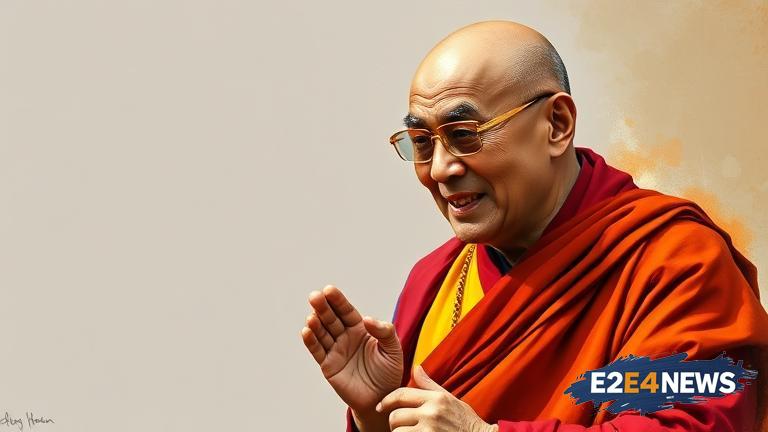In a recent development, BJP MP Tapir Gao has made a significant demand in the Lok Sabha, urging the government to confer the prestigious Bharat Ratna award upon the 14th Dalai Lama. The Dalai Lama, a spiritual leader and a prominent figure in the Buddhist community, has been a long-time resident of India. Gao’s demand is rooted in the Dalai Lama’s extensive contributions to humanity, particularly in the realms of peace, compassion, and interfaith harmony. The Dalai Lama has been a vocal advocate for non-violence and has worked tirelessly to promote understanding and cooperation among different religious and cultural groups. His efforts have been recognized globally, with numerous awards and honors bestowed upon him, including the Nobel Peace Prize in 1989. Gao’s proposal has sparked a mix of reactions, with some hailing the move as a fitting tribute to the Dalai Lama’s legacy, while others have raised concerns about the potential implications of such an honor. The Bharat Ratna is India’s highest civilian award, and conferring it upon the Dalai Lama would be a significant gesture of appreciation for his services to humanity. The Dalai Lama has lived in India for over six decades, having fled Tibet in 1959 following the Chinese invasion. Since then, he has established his residence in Dharamsala, Himachal Pradesh, and has worked to promote the welfare of the Tibetan people and the preservation of Tibetan culture. The Dalai Lama’s relationship with India has been one of mutual respect and admiration, with the Indian government providing him with refuge and support. In return, the Dalai Lama has been an ardent advocate for India’s interests and has worked to strengthen ties between India and the global community. Gao’s demand has also highlighted the significance of the Dalai Lama’s contributions to Indian society, particularly in the areas of education, healthcare, and social welfare. The Dalai Lama has established numerous institutions and initiatives in India, aimed at promoting the well-being of marginalized communities and fostering a culture of peace and compassion. His efforts have had a profound impact on Indian society, inspiring countless individuals to work towards creating a more just and harmonious world. The demand for the Bharat Ratna award has also sparked a debate about the criteria for conferring such honors, with some arguing that the award should be reserved for Indian citizens. However, others have pointed out that the Dalai Lama’s contributions to humanity and his long-standing relationship with India make him an exceptional candidate for the award. As the debate continues, it remains to be seen whether Gao’s demand will be met with a positive response from the government. Nevertheless, the proposal has served to highlight the Dalai Lama’s enduring legacy and his profound impact on Indian society and the world at large. The Dalai Lama’s message of peace, compassion, and interfaith harmony continues to resonate with people from all walks of life, inspiring a new generation of leaders and change-makers. In the context of India’s rich cultural heritage and its tradition of honoring outstanding individuals, the demand for the Bharat Ratna award for the Dalai Lama is a timely reminder of the importance of recognizing and celebrating exceptional contributions to humanity. The proposal has also underscored the significance of the India-Tibet relationship, which has been built on a foundation of mutual respect, trust, and cooperation. As India continues to navigate its role in the global community, the demand for the Bharat Ratna award for the Dalai Lama serves as a powerful symbol of the country’s commitment to promoting peace, harmony, and understanding among nations. The Dalai Lama’s life and legacy serve as a testament to the transformative power of compassion, forgiveness, and non-violence, inspiring countless individuals to work towards creating a more just and peaceful world. In conclusion, the demand for the Bharat Ratna award for the 14th Dalai Lama is a significant development that highlights the importance of recognizing and celebrating exceptional contributions to humanity. As the debate continues, it remains to be seen whether Gao’s proposal will be met with a positive response from the government. Nevertheless, the proposal has served to underscore the Dalai Lama’s enduring legacy and his profound impact on Indian society and the world at large.
